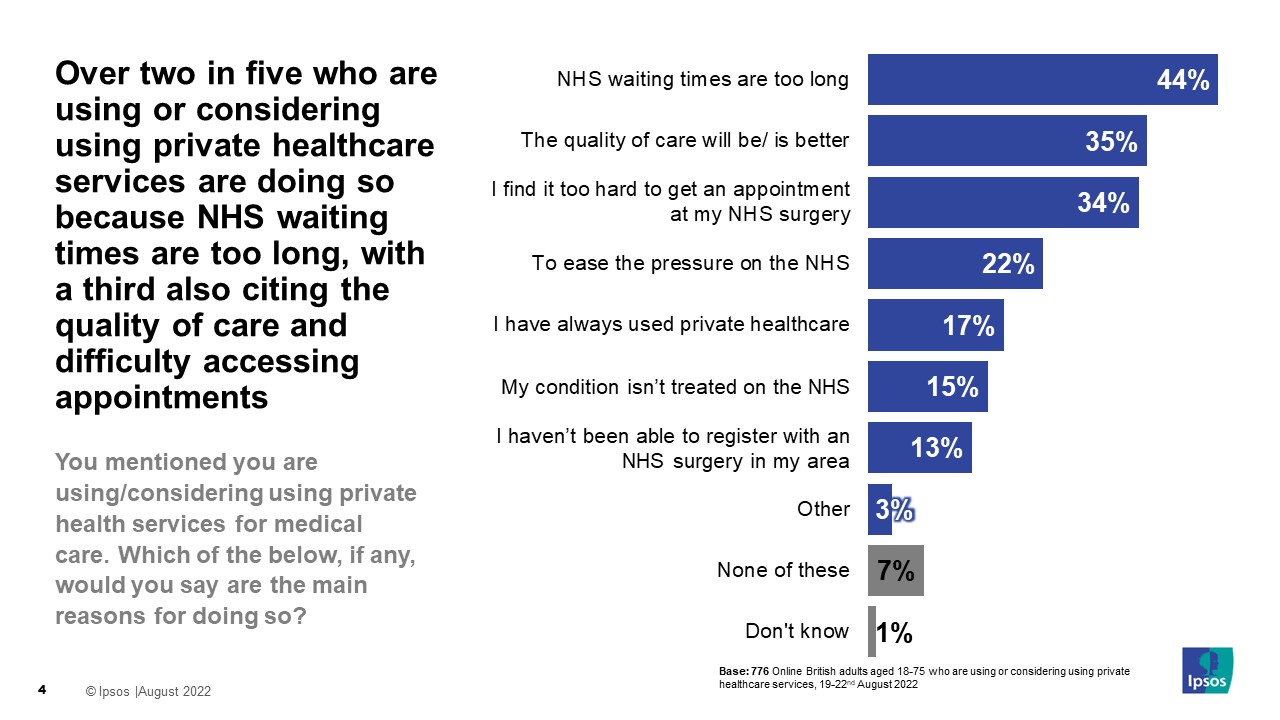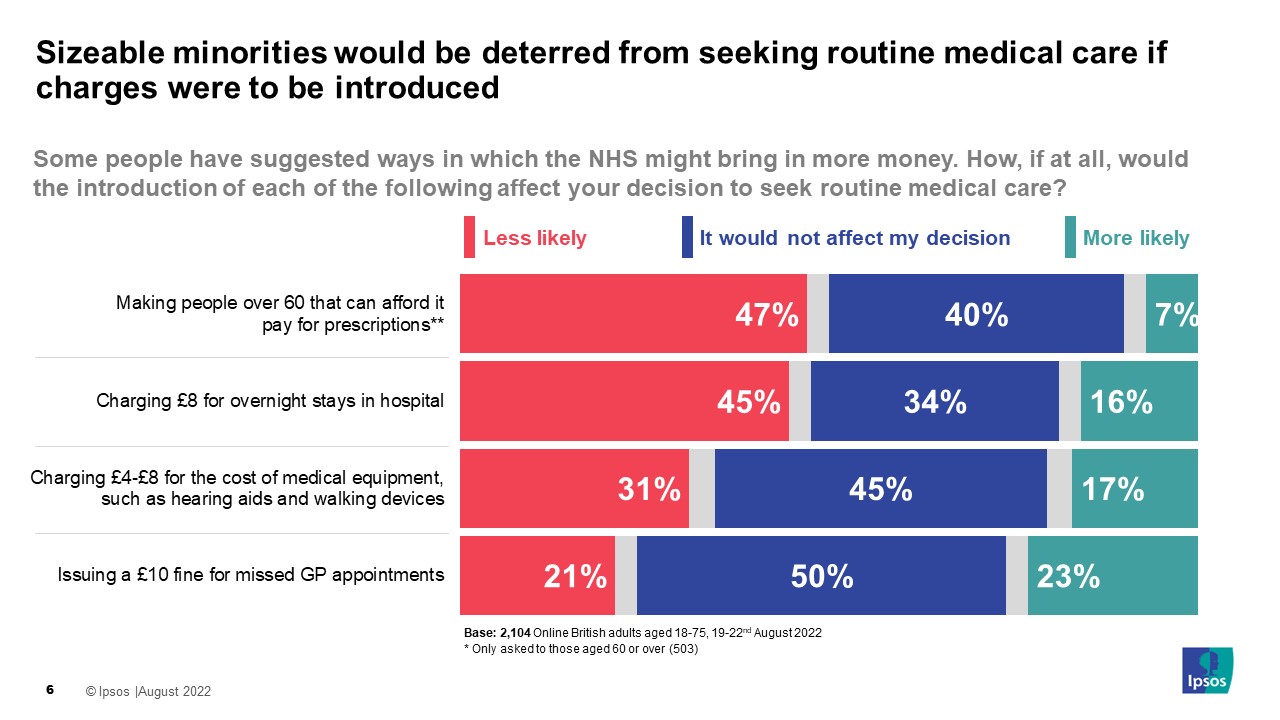Length of NHS wait times is main reason for those using or considering private care
New polling by Ipsos shows that among those who are currently using private medical care or plan to in the next 6 months (32% vs. 61% who are not using and not considering over the next 6 months), the length of NHS waiting lists/times is the main reason for doing so. More than 4 in 10 (44%) of those using or considering private healthcare say they are doing so as NHS wait times are too long.

Other reasons persuading Britons to use or consider private healthcare include a better quality of care (35%) and finding it too hard to get an appointment at their NHS surgery (34%). One in 5 (22%) say they are using or may use private healthcare in the next 6 months to ease pressure on the NHS, while 17% say they have always used it. Few say they are using or considering private healthcare due to their condition not being treated on the NHS (15%) or being unable to register with an NHS surgery in their area (13%).
Currently, 8 in 10 (80%) of Britons do not have private medical insurance while under 1 in 5 (17%) do. Therefore, it may come as little surprise that half of Britons say the offer of private medical insurance would influence them when going for a new job (48%). Similarly, 48% would be influenced by the offer of private dental insurance. However, similar proportions say it would not have an impact (44% for either medical or dental insurance).

Around 4 in 10 say they would be influenced (39%) should a job offer private mental health services, while over half would not (53%). Similar proportions say the same for private vision (eye) insurance; 39% would be persuaded while 53% would not.
While some Britons appear willing to pay various charges for routine care, as suggested by some as a way bring more money into the NHS, sizeable minorities say it would make them less likely to seek care. Almost half (45%) say that charging £8 for overnight stays in hospital would make them less likely to seek routine medical care, while 31% say the same should they have to pay £4-£8 for the cost of medical equipment such as hearing aids or walking devices. One in five people (21%) say the introduction of £10 fines for missed GP appointments would make them less likely to seek routine medical care. Half (50%) say that it would not affect their decision, while 23% say it would make them more likely.

The most striking finding relates to the idea of making people over 60 who can afford it pay for prescriptions. Among all those aged 60 and over, almost half (47%) say this would make them less likely to seek treatment, while four in 10 (40%) say it would make no difference.
Kate Duxbury, Research Director at Ipsos, said:
"Use of private health services remains the preserve of the few, although a sizeable minority of the public are now using, or considering using, private health services. With long waits for NHS services and challenges making appointments at GP practices, we will see how uptake of private healthcare changes in the coming years, as well as the impact on health inequalities. Disparities will also be of interest when thinking about the introduction of potential charges as mooted by some commentators. These results clearly show that some people could be deterred from seeking routine medical care if charges were to be introduced."
Technical note
Ipsos interviewed a representative quota sample of 2,104 adults aged 18-75 in Great Britain. Interviews took place on the online Omnibus on 19th-22nd August 2022. Data has been weighted to the known offline population proportions. All polls are subject to a wide range of potential sources of error.



